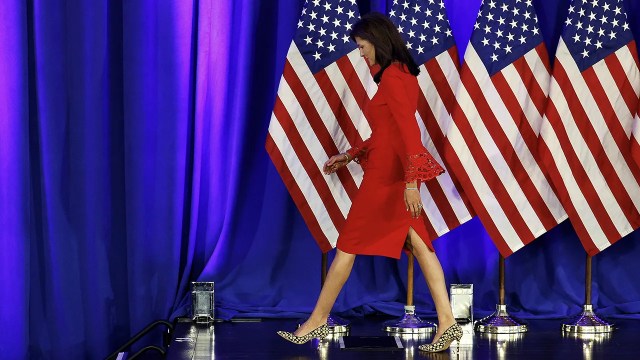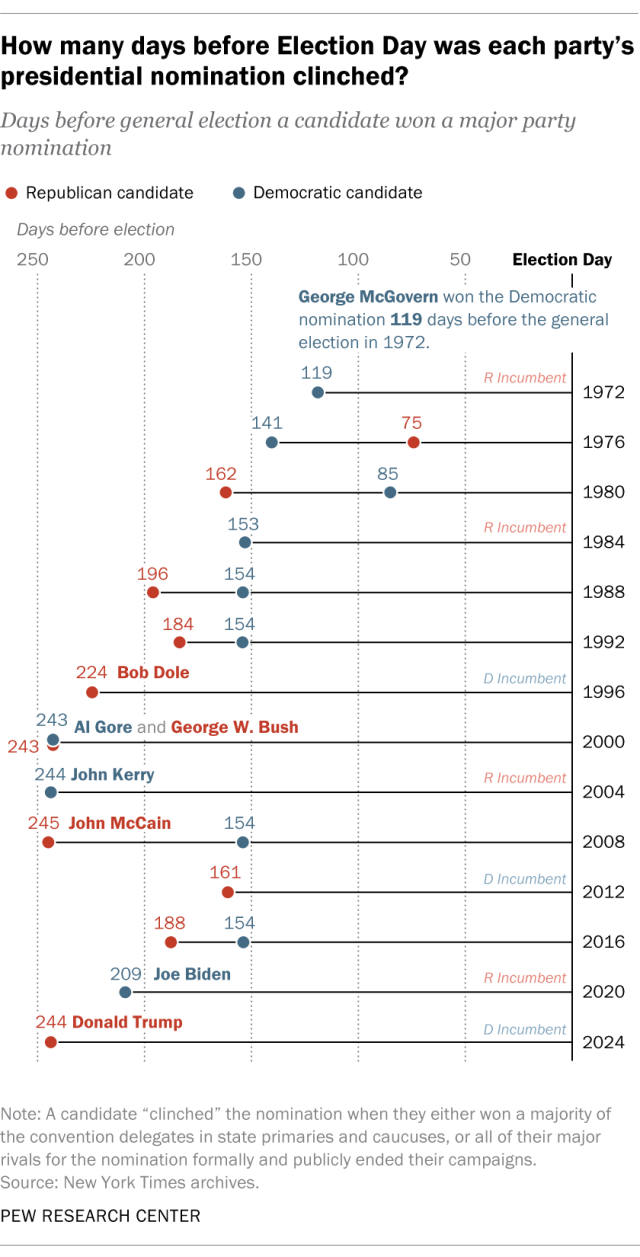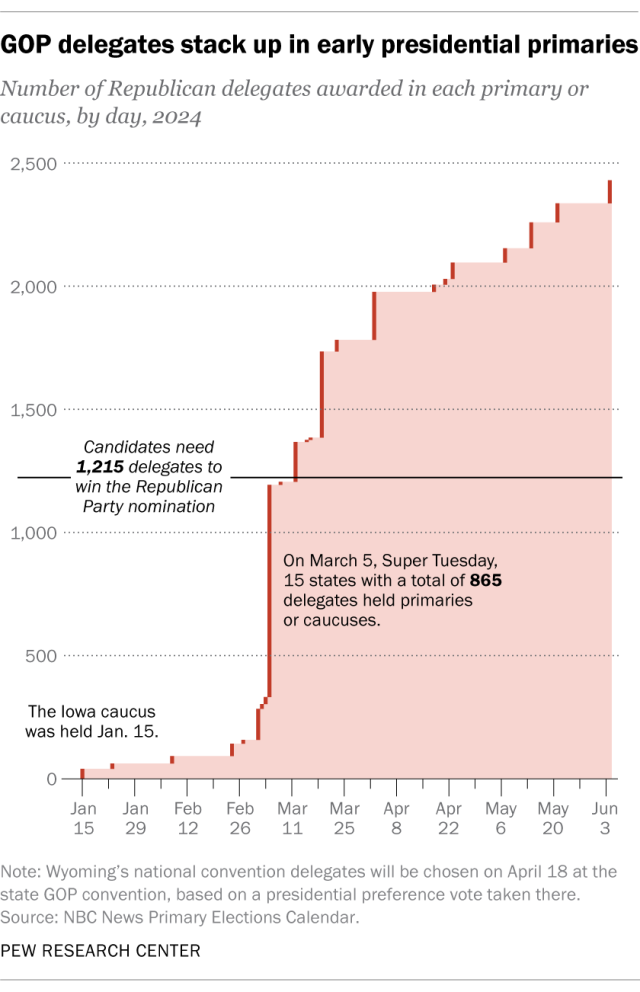
Former South Carolina Gov. Nikki Haley’s departure from the Republican presidential campaign leaves Donald Trump with no major rivals for the GOP nomination. That, combined with President Joe Biden’s largely (though not entirely) uncontested march to renomination for the Democrats, makes 2024 one of the shortest presidential primary seasons since the 1970s, when the current nominating process took shape.
Given the unusual dynamics of the 2024 presidential campaign – with an incumbent president seeking reelection and a former president trying to reclaim the job from the man who beat him the last time – Pew Research Center wanted to find out how long other nominating contests have lasted. We measured this by counting how many days before the November general election each nominee had clinched their party’s nomination.
There is no formal, universally agreed-upon definition of “clinching,” “securing” or “locking up” a nomination. Different media, in different years, have used different criteria to describe candidates accomplishing this. For the purposes of this analysis, we settled on our own definition: A candidate “clinches” the nomination when either (1) they win a majority of the convention delegates at stake in the state primaries and caucuses, or (2) all of their major rivals for the nomination formally and publicly end their campaigns – including efforts to pick off delegates from the leader.
To determine the date on which either of those conditions were met, we reviewed each primary cycle’s coverage in The New York Times. We also consulted other contemporaneous media sources to confirm details.
We began our analysis with the 1972 Democratic primaries, the first year in which a majority of convention delegates were selected in open, competitive primaries. Before then, most national delegates were chosen by state parties or conventions with little or no input from the broader public. We excluded from our analysis instances in which an incumbent president faced little or no opposition to his renomination – for instance, Richard Nixon in 1972, George W. Bush in 2004 and Barack Obama in 2012.

Trump’s likely clinching of the nomination comes 244 days before Election Day, matching Democrat John Kerry’s pace in 2004. Kerry won nine out of 10 primaries on that year’s Super Tuesday, March 2. The following day, Kerry’s last significant opponent, John Edwards, dropped out, giving Kerry a clear path to the nomination.
Only one major-party nominee clinched earlier: Republican John McCain in 2008. McCain, making his second run for the White House, swept the four GOP primaries held that March 4, giving him a majority of convention delegates. That night, McCain’s lone remaining opponent, Arkansas Gov. Mike Huckabee, withdrew from the race and endorsed him – 245 days before Election Day 2008.
The earliest both major parties have wrapped up their nominating contests was in 2000. That year, Democratic Vice President Al Gore and Republican Texas Gov. George W. Bush both clinched their respective parties’ nominations on March 9 – 243 days before the November election. Bush and Gore both dominated the Super Tuesday primaries, leading their sole rivals – McCain and former Sen. Bill Bradley, respectively – to fold their campaigns.
For every presidential election cycle since 1972, Pew Research Center calculated how long before the general election each major-party nominee clinched their nomination, either by accumulating a majority of convention delegates or by default, once all their major rivals dropped out of the race. Our analysis begins in 1972 because that was when the modern primary-dominated nominating process began, at least on the Democratic side; the GOP followed suit in 1976.

Early on, nomination battles sometimes extended all the way to the parties’ national conventions. In 1972, for instance, Sen. George McGovern came to the Democratic convention with far more pledged delegates than anyone else, but his intraparty rivals tried (unsuccessfully) to pry loose enough delegates to deny him a first-ballot victory. McGovern’s victory in that credentials fight guaranteed him the nomination.
The latest a major-party nominee has secured their party’s bid was 75 days before Election Day. In 1976, the long slugfest for the Republican nomination between incumbent President Gerald Ford and former California Gov. Ronald Reagan wasn’t settled until the convention on Aug. 19, when Ford edged out Reagan on the first ballot.
Since then, however, the general trend has been for nominations to be settled considerably earlier, accelerated by the practice of states moving up their presidential primaries to have more influence on the process. More than half of the pledged delegates to this summer’s GOP convention, for instance, will have been chosen by mid-March.



